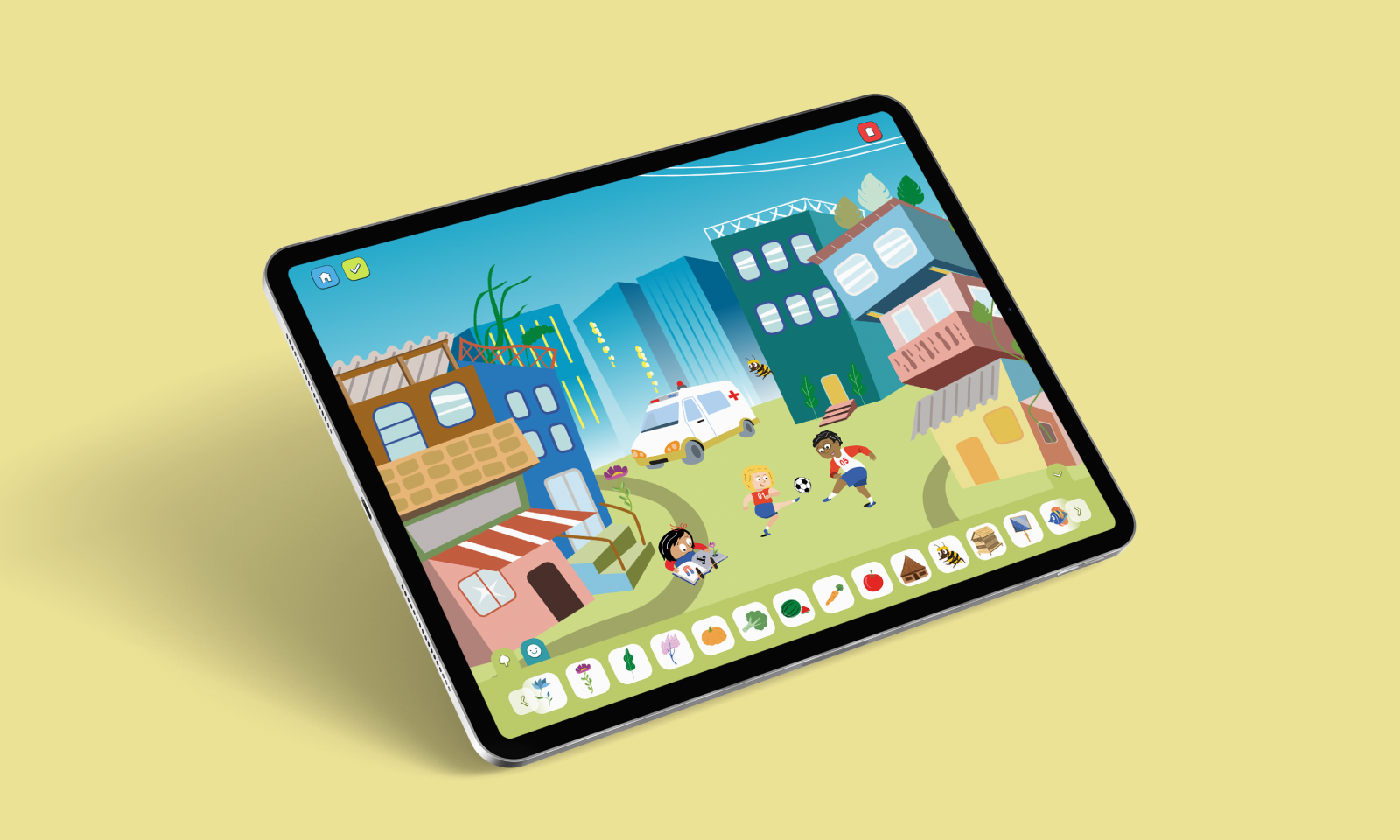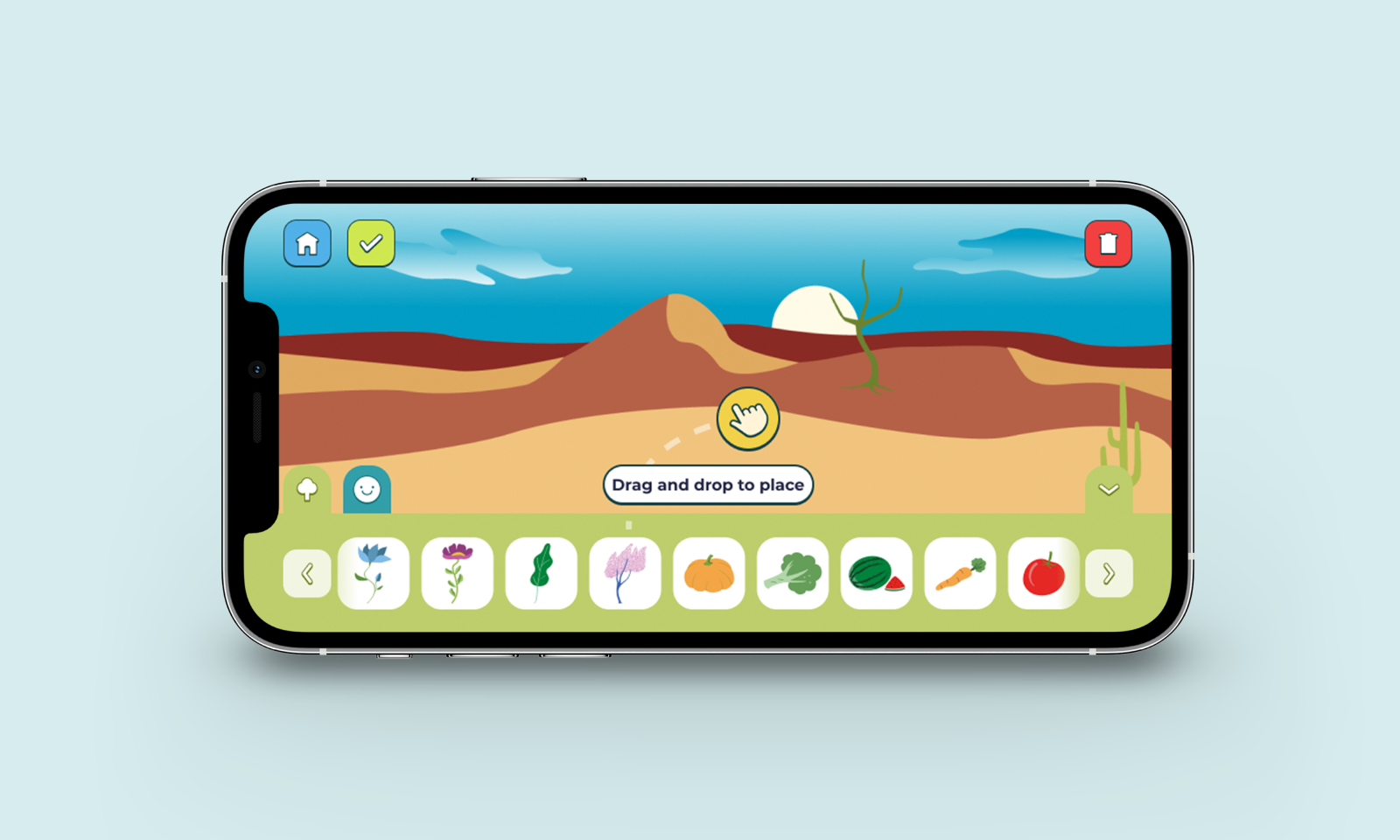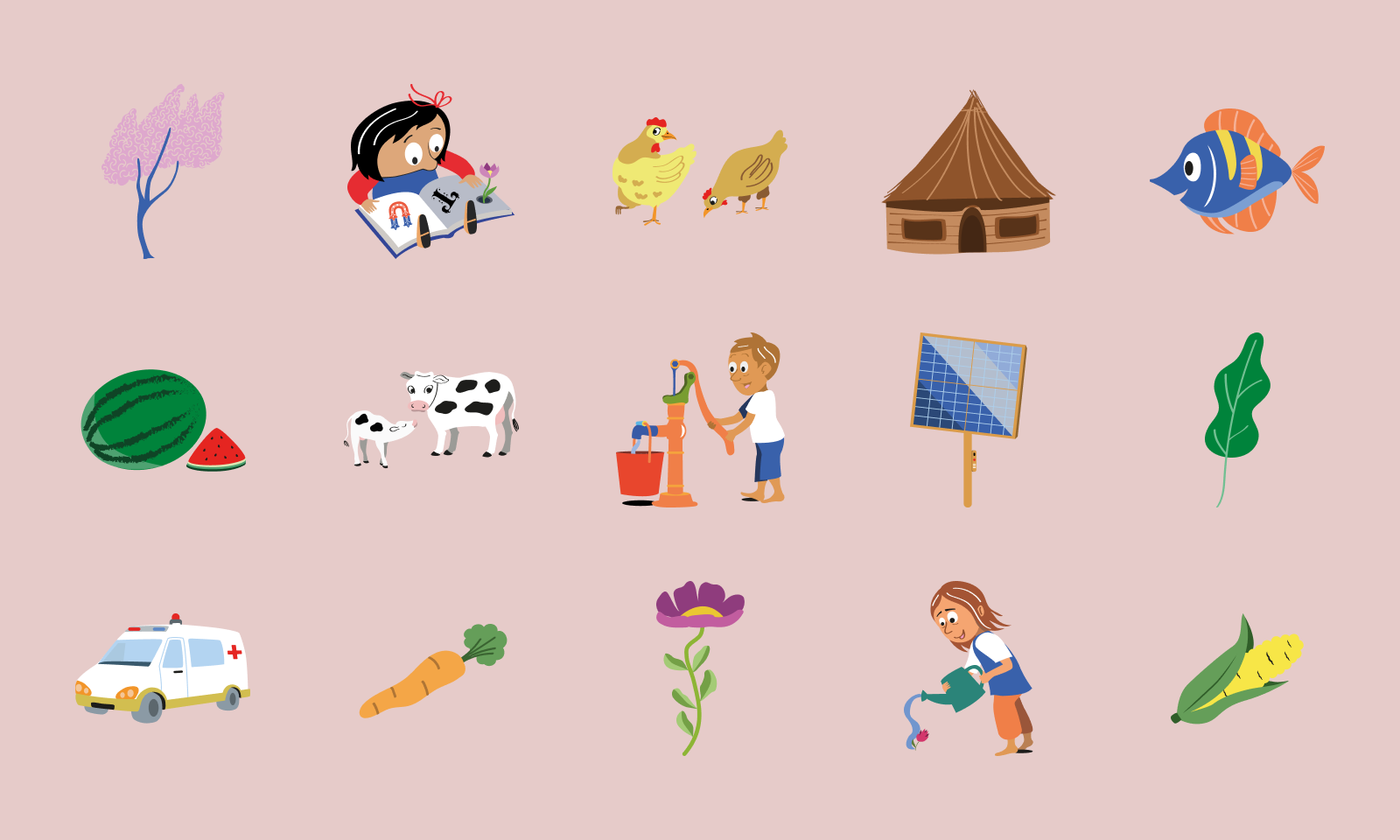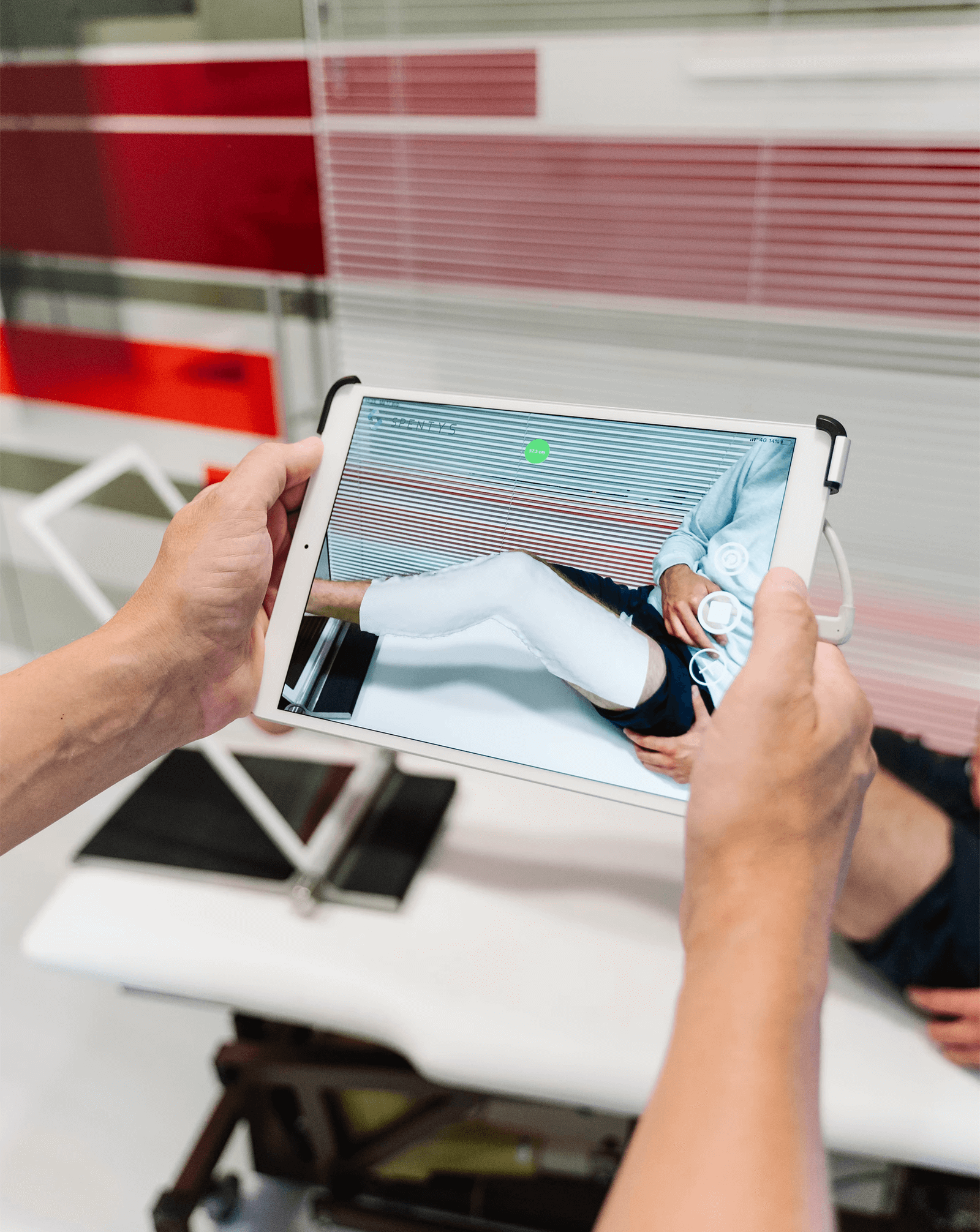CAFOD
The creation of resources for kids to support global learning, to explore the wider world, via engaging interactive online games.

Let’s Set The Scene
CAFOD, the Catholic Agency for Overseas Development is an aid and development charity which supports education about the environment and world culture through the Catholic school curriculum.
The charity created a range of curriculum resources available to schools and teachers through its website, including Kidz Zone, a series of Flash games to support learners.
With the demise of Flash, a new series of updated games were needed and CAFOD brought Big Lemon on board to explore new ways of using technology to support the new curriculum.
The first game - Our Wonderful World - aligns with the Catholic Education Service’s RE Directory and introduces concepts around nature, creation and caring for the earth to the youngest children in school.
Not only are the games a valuable educational resource, but they also help to raise awareness of CAFOD’s charitable work with adults and children alongside the learning outcomes.
The Challenge
The first challenge was to create a game that was educationally fit for purpose. The Kidz Zone resources have always been popular with teachers and many have requested new versions of the games.
So the new games had to be something that teachers would find useful, engaging and educationally appropriate for the classroom. They also needed to be accessible resources for families to use from the CAFOD website.

As classroom technology has evolved in the decade since the original games were released, the new games have been created to work with the increased use of tablets in teaching and with state of the art interactive whiteboard tech.
The games also have to be able to work across multiple devices and platforms - to give teachers the greatest flexibility and also ensure they are accessible to learners and parents at home.
“Making use of the more advanced technology available today, alongside a visual update of the game using more contemporary illustrations has made it more compelling and engaging for users.”
Patrick Dean, Education Resources Coordinator, CAFOD
The Tech Bit
- The CAFOD website is built in the same stack that we use, so we used Next.js Multi-zones to embed the game into the existing site
- While the game needed to work on multiple devices, we found that portrait mode on mobile devices was too small for the game to give a positive experience. We switched this up by adding a neat ‘rotate device’ animation to guide users
- As the game has no backend database to power it, we wanted users to remember their progress. We added an image capture feature to turn their creating into a sharable image to download.
The Outcomes
For children, the games help them to think more about the world around them, to engage with it and to care for it. They are encouraged to think about their global neighbours and how people live all around the world, the challenges they face and how CAFOD works to support them.
For their teachers, the games offer a set of curriculum-aligned resources which are an easy, more engaging way to deliver their lessons. And for parents, they are trusted tools which they can use to support children’s learning.

As more people use the Kidz Zone resources, there are multiple beneficial outcomes for CAFOD. Greater traffic to the Kidz Zone website helps to engage children and young families with the CAFOD brand and its work. And the popularity of the resources helps to maintain CAFOD’s reputation at the heart of the Catholic education curriculum.
The lessons from the redesign of the first game which supports the youngest school age group will be taken forward to the next stage of the product journey - working to co-create resources which will align with the gaming experiences of the 6 - 8 and the 8 - 10 year old age groups.
Why Big Lemon?
“We’ve enjoyed working with the Big Lemon team, we’ve really appreciated their enthusiasm for the project. They’ve taken us through step by step, being really focussed on what’s needed and setting clear expectations at each stage.”
“We found the Discovery process very useful, working together to create a picture of all of our audiences, what needed to be built and the required outcomes. It was straightforward, through the MoSC0W process, to see what we should prioritise, agree on a way forward and move quickly to a project plan”
“The tools they use to share information have been very useful - things like the shared Miro board where we could see wireframes and draft illustrations. It made the process and timing of knowing what we had to feedback on really clear and easy, especially through the testing phase.”
“We’re looking forward to what comes next as we start work on further games to reach the next age groups and taking on a new part of the curriculum.”
Patrick Dean, Education Resources Coordinator, CAFOD

